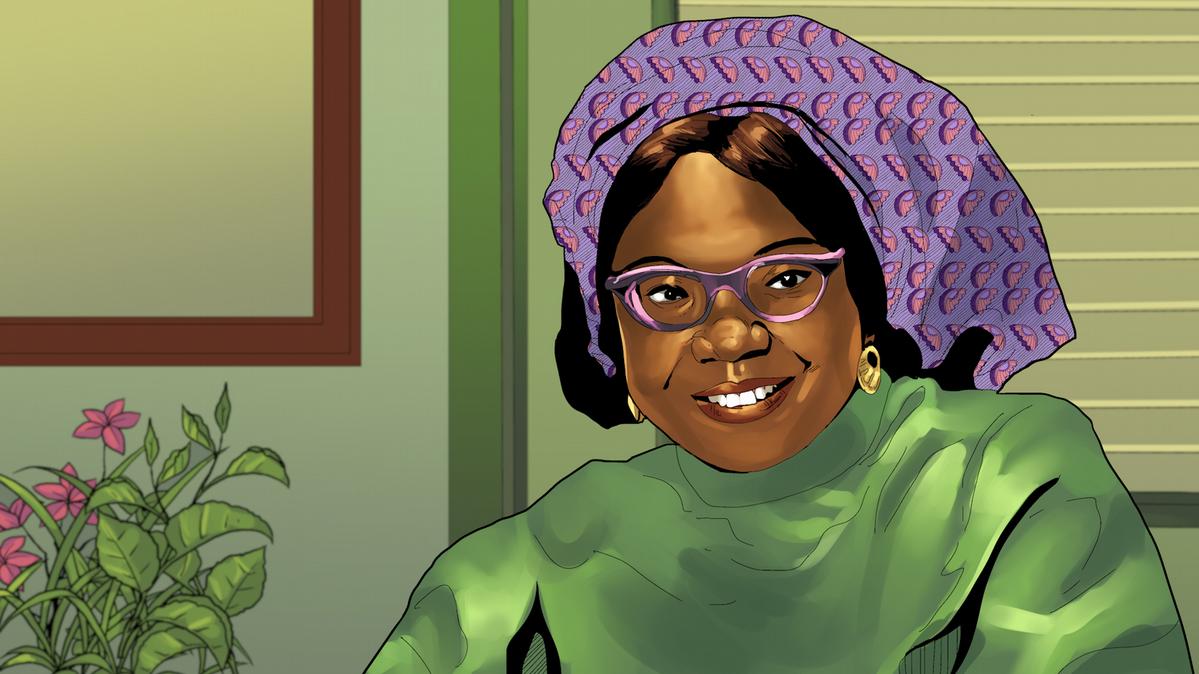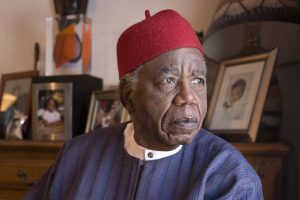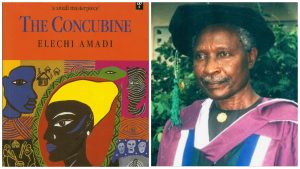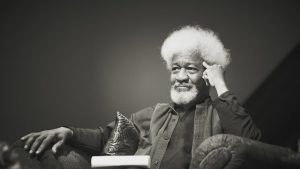Often credited as the “Mother of African Literature,” Flora Nwapa was a trailblazing Nigerian writer Born in Oguta, Nigeria, on January 13, 1931, Nwapa made history as the first African woman to publish an English book. Particularly in providing voice to women’s experiences, struggles, and accomplishments in African society, her writings have had a significant influence on African literature. Celebrated for its examination of gender norms, tradition, and social change as well as for its depiction of strong, multifarious female characters, Nwapa’s work
Who Was Flora Nwapa?
Educator, government official, and writer Flora Nwapa was instrumental in forming contemporary African writing. Nwapa returned to Nigeria, where she held many governmental and educational roles, having studied at the University of Edinburgh and University College Ibadan. Though she has accomplished professionally, her work as a writer is what will endure.
Often emphasizing the life of women, Nwapa’s books of short tales and novels explore their challenges and successes within the framework of traditional African culture and the demands of modernity. Her work is renowned for its rich portrayal of Igbo culture and for stressing women’s resiliency and inventiveness. Future generations of African women authors, who have been exploring related issues in their own works, owe their path to Nwapa.
Efuru: Flora Nwapa’s Best Work
Published in 1966, Flora Nwapa’s first book Efuru is the most well-known and powerful masterpiece. Not only was Efuru the first book written by an African woman in English, but it also presents a complex picture of African femininity that questions accepted narratives, therefore challenging conventional wisdom. Set in an Igbo community in Nigeria, the book chronicles Efuru, a strong and self-reliant woman who negotiates the complexity of life in a patriarchal environment by bucking social norms.
Plot Overview
Efuru follows the life of her namesake, a beautiful and accomplished lady from her tribe. Efuru struggles personally despite her riches and reputation, especially in her interactions with men. She marries twice, but both times her first husband, Adizua, deserts her and her second husband, Gilbert, falls short in offering the love and company she so yearns for.
As Efuru decides against conventional wisdom throughout the book, her power and autonomy are underlined. For instance, Efuru decides not to remarry right away after the breakdown of her first marriage instead concentrating on her personal happiness and business activities. This choice shows her rejection of the social convention according to which a woman’s value depends on her marital position.
The spiritual trip of the protagonist in Efuru is among its most important features. Like Efuru, the river goddess Uhamiri is beautiful, independent, and childless and she starts to follow her. This spiritual link emphasizes how the book explores for women outside of marriage and motherhood different kinds of satisfaction.

Themes and Cultural Context
Efuru has a lot of topics that speak to African women’s lives. The struggle between tradition and modernism runs throughout the book as one of its main subjects. Particularly in relation to marriage and children, Efuru’s decisions often contradict the conventional wisdom of her country. Nwapa, however, shows these tensions in a manner that highlights the difficulty of negotiating these positions instead of presenting them as simple binaries.
The tenacity and resiliency of women is another important motif in Efuru. Efuru’s character represents the creativity and tenacity many African women have to use to live and flourish in a culture often restricting their chances. By means of Efuru, Nwapa emphasizes the significant responsibilities women do in their societies as spiritual leaders as well as economic contributors.
The book also looks at parenting, especially the taboo of childlessness in African civilization. Though Efuru’s inability to conceive causes societal pressure and suffering, Nwapa explores this side of her life with empathy and depth. Nwapa questions the idea that a woman’s status is only based on her capacity to produce children by stressing Efuru’s other achievements and her spiritual contentment.
Contribution to African Culture and Literature
The massive contribution made by Flora Nwapa to African literature and culture is By means of Efuru and other works, Nwapa managed to reshape the portrayal of women in African literature. She put women at the heart of her stories, examining their inner life, their problems, and their strength, thereby divorcing the passive, secondary positions often accorded to female characters.
Additionally very important in maintaining and honoring Igbo culture was Nwapa’s work. Readers get a glimpse into the rich cultural legacy of the Igbo people via her thorough explanations of rituals, beliefs, and social behaviors. Her work also critically interacts with these traditions, especially in regard to gender roles, therefore providing a complex view of the difficulties of cultural transformation.
The impact of Nwapa beyond her creative successes. Establishing her own publishing firm, Tana Press, in the 1970s, she also pioneered African publication. Nwapa supported the work of African women authors via Tana Press, giving their voices a stage on which to be heard and thereby helping African literature to flourish.
Conclusion: Why Flora Nwapa and Efuru Matter
Offering a powerful and complex picture of African femininity, Flora Nwapa’s Efuru is a seminal work in African literature. By means of Efuru, Nwapa questions conventional gender norms and investigates issues of independence, resiliency, and spiritual satisfaction. Readers still find great resonance in Efuru, a timeless book that provides insights on the complexity of life in African civilizations and the fortitude of the women who negotiate them.
Flora Nwapa’s writings appeal to young readers not just as an introduction to African literature but also as a call to investigate the many realities of women in many cultural settings. Participating with Efuru would help readers to better appreciate Africa’s rich cultural legacy as well as the continuous challenges and victories of African women. Nwapa is a major player in the history of African literature as her legacy as a writer and cultural icon inspires next generations of readers and authors.
Please read all our stories on African Literature here



